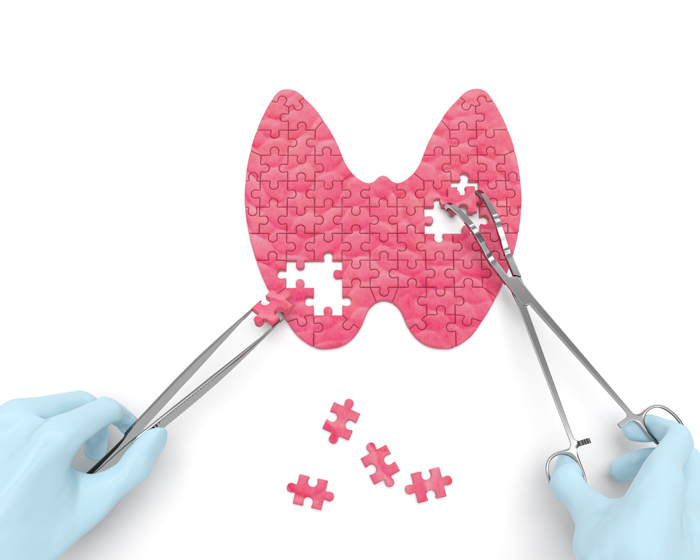Thyroid Gland Removal Surgery in Karol Bagh, Delhi
Introduction
Do you notice any nodular swelling in your neck? Well, if yes, you may be suffering from a benign cancerous tumor involving the thyroid glands situated in the neck region. Due to this, you may face difficulty in breathing and swallowing. A change in voice may be one of the earliest signs that you might notice. Thyroid removal or thyroidectomy is the treatment for such conditions. Visit a thyroid removal hospital near you having the best thyroid removal doctors near you.
Overview of thyroidectomy
Thyroid removal of thyroidectomy is a surgical procedure in which a part of or the entire thyroid gland is removed. It is performed as a treatment for thyroid cancer, thyrotoxicosis, patients with hyperthyroidism, large goiter, and multinodular goiters. It is a minimally invasive procedure and the approach is decided by the doctor depending on the extent of the involvement of the gland. The thyroid gland is a butterfly-shaped gland formed by the two lobes joined together with the isthmus.
The gland is located in the anterior lower part of the neck, below the voice box. The function of the thyroid gland is to regulate metabolism with the secretion of hormones. It helps in maintaining the proper functioning of the organs and conserves body heat.

About thyroidectomy
Thyroid removal treatment in New Delhi may be performed at a Thyroid removal hospital in New Delhi. Before the surgery, patients are advised not to eat or drink anything after midnight. The procedure is performed under general anesthesia which is administered intravenously by an anesthesiologist. The thyroid removal specialist in New Delhi carefully makes an incision over the thyroid gland and then removes a part of the entire thyroid gland depending on the treatment plan based on the extent of the involvement of the gland. As the gland is surrounded by other glands like the parathyroid gland and the nerves, the procedure may take around 2 hours to complete to avoid injury to the neighboring organs, glands, nerves, and vessels.
Who qualifies for thyroidectomy?
Thyroid removal surgery or thyroidectomy is recommended for those suffering from the following conditions:
- Thyroid Cancer
- Hyperthyroidism (overactivity of the thyroid gland)
- Goitres
- Multinodular Goitres
- Thyrotoxicosis (increased thyroid hormones in the bloodstream)
Request an appointment at Apollo Spectra Hospitals, Karol Bagh, New Delhi
Call 1860 500 2244 to book an appointment
Why is thyroidectomy conducted?
A thyroidectomy is conducted as a treatment for people having breathing difficulty or difficulty in swallowing due to thyroid cancer, goiter, multinodular goiters, hyperthyroidism, or thyrotoxicosis.
Different types of thyroidectomy
There are around five different types of thyroidectomy or thyroid removal surgeries. Listed below are the different types of thyroidectomy that are decided by the thyroid removal specialist near you based on your condition.
- Hemithyroidectomy/Thyroid Lobectomy: involves the removal of one or only the affected part of the lobe of the thyroid gland.
- Subtotal thyroidectomy: Removal of the entire thyroid gland leaving behind around 8 gm of the tissue.
- Near-total thyroidectomy: In this procedure, both lobes of the thyroid glands leave a small amount of thyroid tissue near the entry point of the recurrent laryngeal nerve.
- Total thyroidectomy: The entire thyroid gland is removed in cases with thyroid carcinoma/cancer of the thyroid glands.
- Isthmusectomy: Involves the removal of the isthmus (the part of the gland connecting both the lobes) is a case of tumors of the isthmus.
Benefits of thyroidectomy
The benefits of thyroidectomy include,
- It regulates the normal metabolism
- It restricts the growth of thyroid cancer on the excision of the affected part
- It restores the normal functioning of the gland
- It maintains the airway and improves the swallowing pattern
Risks or complications associated with thyroidectomy
The most common risks and complications associated with thyroidectomy or thyroid removal surgery are,
- Infection at the site of incision
- Excess blood loss during the surgery
- Injury to the neighboring gland (parathyroid gland) leading to a decrease in the calcium level and muscular spasm
- Injury to the nerve (recurrent laryngeal nerve) that supplies the thyroid gland leading to permanent hoarseness of the voice
- In the case of thyroid cancer, additional therapies are required post thyroid removal; this involves radioactive iodine therapy
- Obstruction of the airway due to excessive bleeding
Conclusion
Consult a thyroid removal doctor and get yourself treated at the earliest. It is a completely non-invasive procedure that will help you get rid of all your breathing and swallowing problems due to the modular growth of the thyroid gland.
The symptoms of hyperthyroidism are
- Corneal erosions
- Fatigues
- Wait for gain
- Hair loss
- Constipation
- Dryness of the skin
- Anxiety
- Depression
- Sweating
Wait for a minimum of 10 days to get back to your normal schedule. Take suggestions from your doctor before engaging yourself in strenuous exercises. Continue with the medications as prescribed by your doctor.
You can resume back to your normal balanced diet as tolerated by your body. Make sure to consume plenty of fluids.
Symptoms
Our Doctors
DR. PALLAVI GARG
MBBS, MD (General Me...
| Experience | : | 17 Yeras Experience |
|---|---|---|
| Speciality | : | General Surgery & Ga... | Location | : | Karol Bagh |
| Timings | : | Mon - Fri : On Call... |
Our Top Specialities
NOTICE BOARD
CONTACT US
CONTACT US
 Book Appointment
Book Appointment



.svg)
.svg)
.svg)
.svg)








